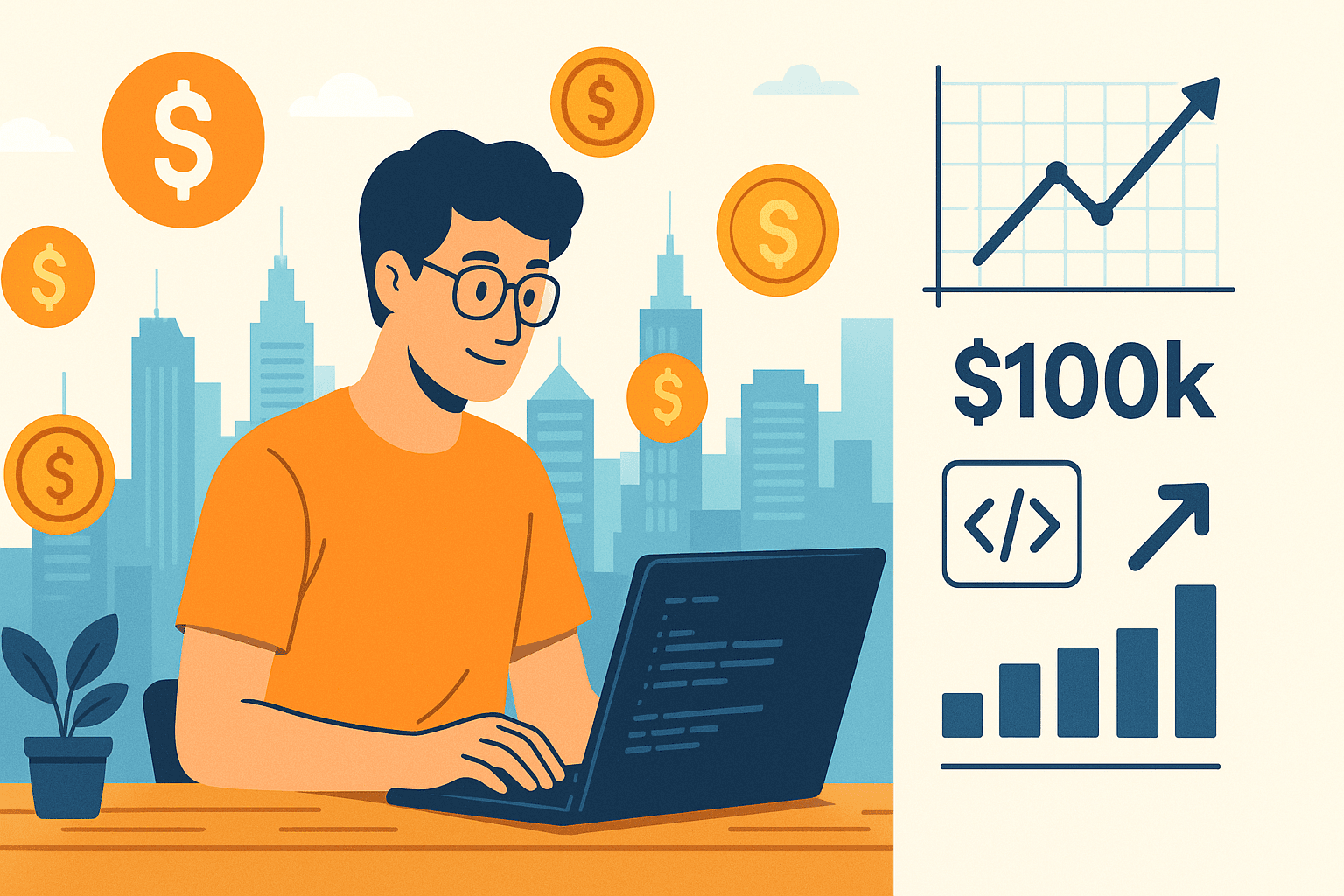Unlocking Financial Freedom: The Wealth of Coding Skills

Have you ever considered how valuable coding skills are in today's job market? If you’re pondering a career switch or just starting out, the financial benefits of learning to code could be your golden ticket. Let’s dive into why coding is not just a skill but a strategic investment in your future.
Right from the introduction of ' Should You Become a Software Developer ', the author sets the stage for understanding the earnings potential in the tech industry. The book emphasizes that the path to becoming a software developer is not only about technical expertise but also about the incredible job opportunities that await those with coding skills. The demand for software developers is skyrocketing, and with it, the salaries are following suit.
So, what does this mean for you? If you're an aspiring developer, you’re entering a field where your skills can significantly elevate your earning potential. In various chapters, the author discusses how many individuals are drawn to coding not just for the love of technology but primarily for financial incentives. This is a valid motivation, as coding skills often lead to higher salaries across multiple industries. Whether you're aiming for a role in software development, IT project management, or even entering fields like healthcare and finance, coding can give you a competitive edge.
Moreover, the financial benefits extend beyond just landing a job. As highlighted in the book, specialized coding roles such as DevOps, data analytics, and even freelancing can yield impressive returns. Freelancing can be particularly lucrative—while it comes with its own set of risks, many developers find they can charge premium rates for their services. This flexibility allows for greater control over your income, a significant perk in today’s gig economy.
The author’s personal journey illustrates another crucial point: the importance of continuous learning. In the ever-evolving tech landscape, staying updated with the latest coding languages and practices can open doors to higher-paying positions. The book emphasizes that investing in education—whether through formal courses, boot camps, or self-directed learning—can yield exponential returns. By expanding your skill set, you not only increase your marketability but also your earning potential.
Let’s not forget the power of networking and mentorship, which the book discusses as vital tools for career advancement. Building connections within the industry can lead to opportunities you might not find on job boards, often with better financial outcomes. The tech community thrives on collaboration, and being part of it can fast-track your career growth.
In concluding, the discussion around the financial benefits of coding is not merely about dollars and cents; it's about the freedom and flexibility that come with it. The author encourages readers to overcome self-doubt and embrace the journey. Remember, while the path to becoming a software developer may come with challenges, the rewards—both financial and personal—are well worth it.
So, if you’re still on the fence about diving into coding, consider this: every line of code you learn could be a step toward financial stability and career satisfaction. The tech world is waiting for fresh talent, and with your coding skills, you could be the one to shine in it!
Books: Should You Become a Software Developer
Authors: Lukasz Marek Sielski
Publishers: SIELAY LTD